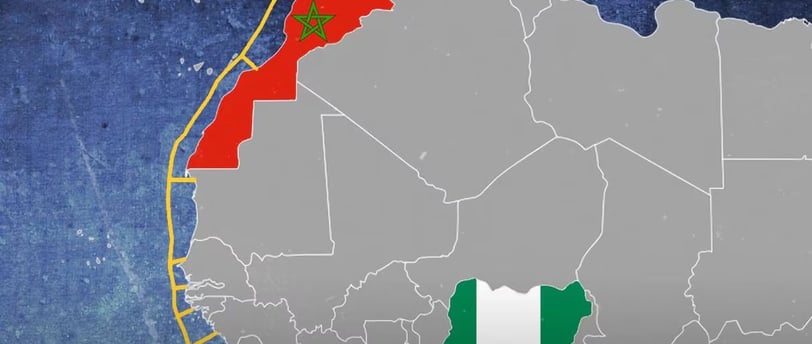Nigeria-Morocco Gas Pipeline: Transforming Africa's Energy Landscape
The Nigeria-Morocco Gas Pipeline (NMGP) is a transformative energy infrastructure project set to redefine Africa’s economic and industrial future.
Editor
3/18/20252 min read


The Nigeria-Morocco Gas Pipeline (NMGP) is a transformative energy infrastructure project set to redefine Africa’s economic and industrial future. Envisioned as a 5,600-kilometer transcontinental pipeline, this ambitious initiative will connect Nigeria’s vast natural gas reserves to Morocco and Europe, supplying energy to over a dozen West African nations along the way. More than just a pipeline, the NMGP is a strategic economic corridor designed to bolster regional energy security, industrial growth, and cross-border cooperation.
A Game-Changer for Africa’s Energy Security
As Africa’s largest natural gas producer, Nigeria holds an estimated 206 trillion cubic feet of proven gas reserves. However, much of this resource remains underutilized due to infrastructure limitations. The NMGP presents a strategic solution, allowing Nigeria to monetize its gas wealth while providing West African nations with a reliable and cleaner energy alternative to coal and oil. For countries along the pipeline’s route—including Benin, Togo, Ghana, Côte d’Ivoire, Senegal, and Mauritania—the NMGP will help bridge critical energy deficits, support industrialization, and reduce dependence on costly imported fuels.
By offering a stable and affordable energy supply, the pipeline will power industries, enhance electricity generation, and attract foreign investment. Countries like Senegal and Ghana, which are already developing their own gas resources, stand to benefit from enhanced energy integration, fostering a more resilient and interconnected West African energy market.
Unlocking Industrial and Economic Growth
Beyond its energy implications, the NMGP is poised to drive significant economic expansion across Africa. Reliable access to natural gas is a crucial factor for industrialization, providing the necessary fuel for sectors such as manufacturing, agriculture, and petrochemicals. By facilitating industrial hubs along its route, the pipeline is expected to create thousands of jobs, stimulate local economies, and attract international investors looking for stable and scalable energy solutions.
In Morocco, the pipeline aligns with the country’s broader energy diversification strategy. By integrating Nigerian gas into its energy mix, Morocco can reinforce its position as a key energy hub between Africa and Europe. This enhances the continent’s role in global energy supply chains, providing European markets with a reliable alternative to traditional gas sources.
Strategic Partnerships and Project Viability
The NMGP enjoys strong political backing from the governments of Nigeria and Morocco, as well as the Economic Community of West African States (ECOWAS). Feasibility studies have been completed, and key financing discussions are underway with international institutions. While the estimated cost of the project exceeds $25 billion, its long-term benefits—both in economic returns and geopolitical stability—justify its scale.
The pipeline’s development also aligns with global energy transition goals. As Europe seeks to diversify its energy imports, the NMGP positions Africa as a strategic partner in the future of global energy security. By exporting natural gas to European markets, the pipeline could generate significant revenues for African economies, strengthening their financial resilience and global economic positioning.
A Catalyst for Africa’s Economic Sovereignty
The NMGP is not just an energy infrastructure project—it represents a broader vision of African economic sovereignty. By leveraging its own resources to fuel industrial and economic growth, Africa is taking a proactive role in shaping its development trajectory. The project stands as a testament to the continent’s ability to execute large-scale, cross-border initiatives that foster regional cooperation and long-term prosperity.
As work on the pipeline progresses, its success will be measured not only by its capacity to transport gas but by its ability to unlock industrial opportunities, create employment, and establish Africa as a leading player in global energy markets. The NMGP embodies the future of African-led development—ambitious, strategic, and built for sustainable growth.


